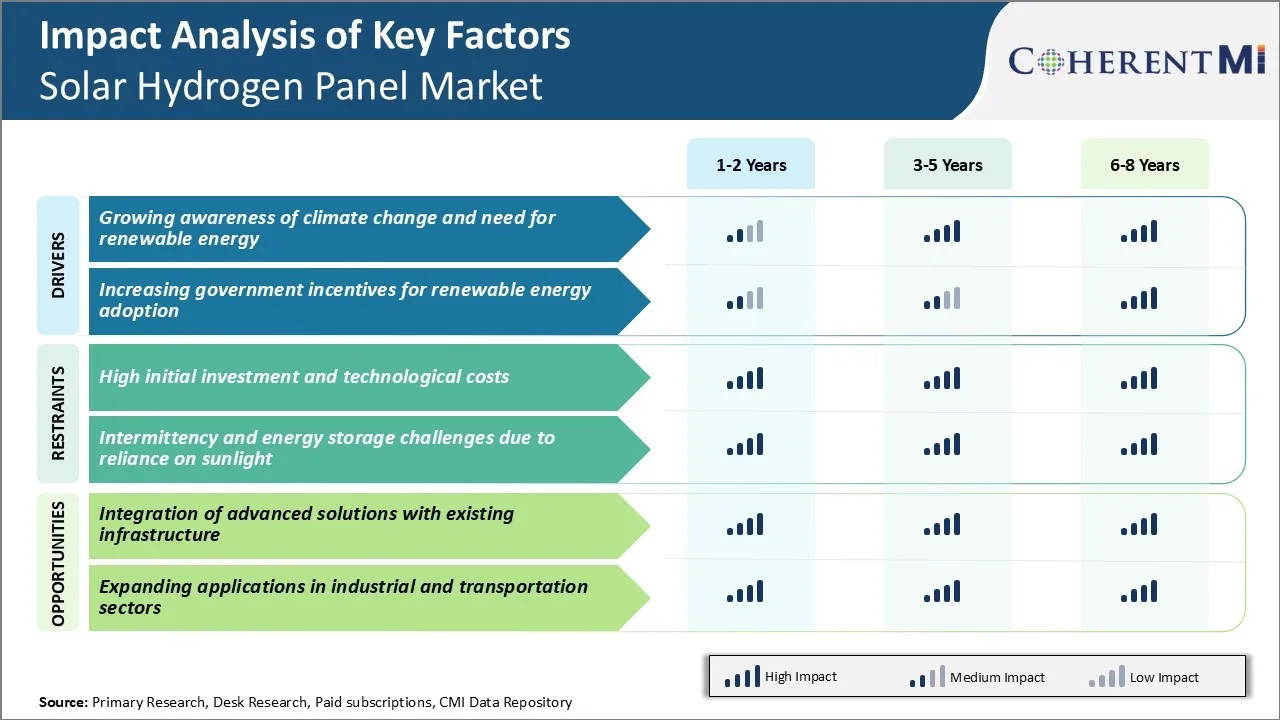Solar Hydrogen Panel Market Trends
Market Driver - Growing Awareness of Climate Change and Need for Renewable Energy
Global climate change situation continues to worsen with each passing year. It is becoming clearer to people that we must transition to renewable energy sources that do not pollute the environment. Hydrogen has emerged as a very promising technology for renewable energy storage and this is driving interest in solar hydrogen panels that can provide renewable electricity as well as hydrogen fuel production using only sunshine and water.
The solar hydrogen panel technology is gaining recognition for its potential role in decarbonizing our energy systems. A future powered by clean and locally produced solar hydrogen panel microgrids can offer energy security, environmental sustainability as well as new jobs and economic opportunities.
Investments are flowing into research and development to improve efficiency and bring down costs for players in the solar hydrogen panel market. Companies are also focusing on helping solar hydrogen panels to reach commercial deployment at scale in the coming decade.
Market Driver - Increasing Government Incentives for Renewable Energy Adoption
Governments across the globe have employed a variety of policy tools and financial incentives to accelerate adoption of clean energy technologies. Tax credits, rebates, low interest loans, and competitive contract prices supported by renewable portfolio standards have incentivized both utility scale projects and rooftop installations.
Regulatory policies promoting renewables have played a major role in lowering costs through economies of scale. For example, Germany's historic feed-in tariff program is credited with catalyzing its world leading solar industry. Countries like India and China have implemented aggressive solar targets through National Solar Mission and similar programs.
Investments made possible through government support have spurred technological learning curves and driven solar module prices down by over 80% in the past decade alone. This is expected to contribute to growth of the solar hydrogen panel market in the long run.

Market Challenge - High Initial Investment and Technological Costs
The main challenge facing the solar hydrogen panel market is its high initial investment and ongoing technological costs. Setting up manufacturing plants and facilities to produce solar hydrogen panels requires massive capital expenditure. The solar cells, electrolysers, and other key components used in these panels also have significantly higher prices compared to traditional solar panels.
Transitioning to a commercially viable mass production scale will be critical to drive down costs. However, achieving economies of scale will depend on rapidly scaling up demand. Given that solar hydrogen panels are a new technology in the energy market, widespread consumer adoption may take time as there is still lack of awareness and education around this innovative solution.
High upfront installation costs for residential and commercial prosumers also act as a barrier for market growth currently. Continuous research and development are needed to improve the materials, designs and manufacturing processes to make solar hydrogen panels more affordable over the long run.
Market Opportunity - Integration of Advanced Solutions with Existing Infrastructure
One major opportunity for the solar hydrogen panel market is its ability to integrate with existing electricity and gas infrastructure. As these panels can produce both electricity and hydrogen gas on-site through a single system installed on rooftops or other spaces, it provides a unique value proposition.
Additionally, the generated electricity can be self-consumed or exported back to the grid. Such integration with current energy infrastructure avoids the need for setting up entirely new distribution systems, bringing down overall project costs. It also makes decentralized renewable energy production and usage much more practical and convenient. This facilitating factor can accelerate the large-scale commercial and industrial adoption of solar hydrogen panels.